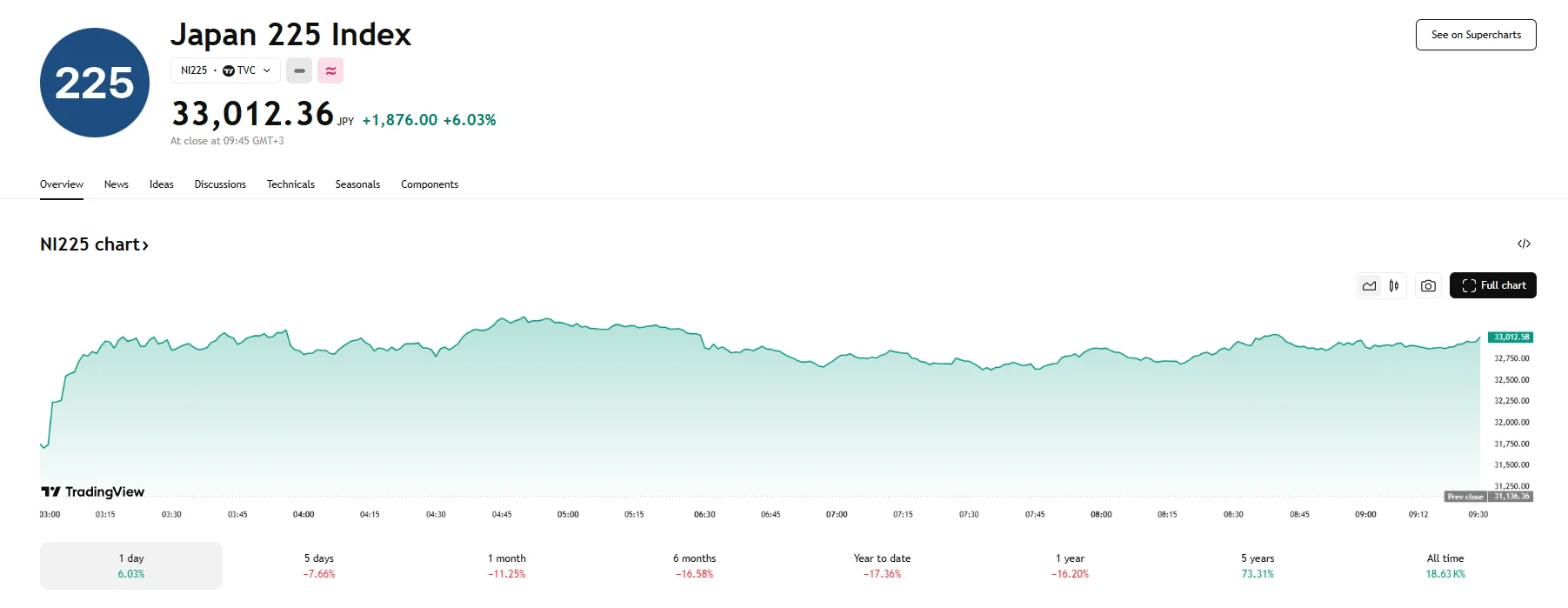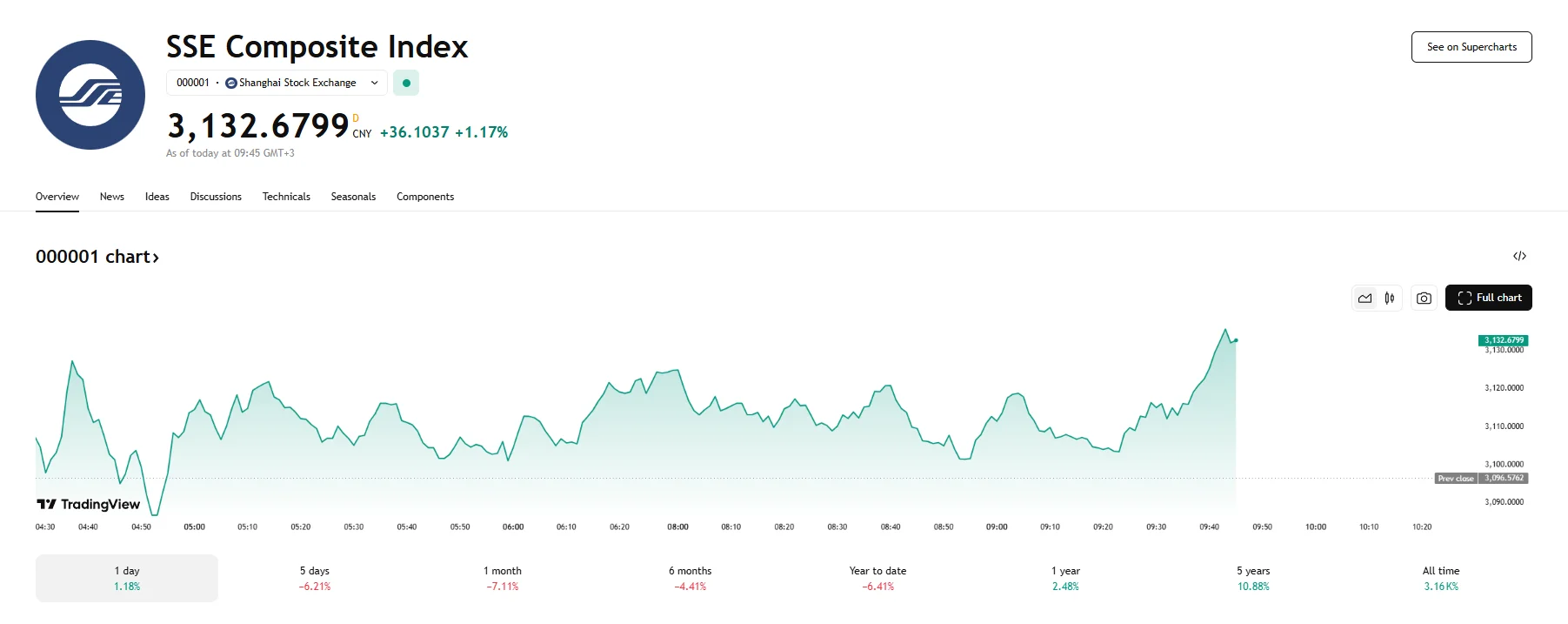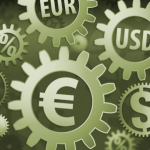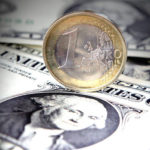Key moments
- Tuesday witnessed a significant market rebound across Asia, with the Nikkei 225 climbing 6%.
- Mainland China’s SSE Composite rose 1.17%, while Hong Kong’s Hang Seng Index climbed 1.28%.
- China has pledged to “fight to the end” after Trump announced he would impose a new 50% levy on imports from China.
Trump Drops Latest Tariff Bombshell, Major Asian Indices Rally
Asian markets achieved a notable recovery on Tuesday in the face of US President Donald Trump’s latest tariff threats against China. Japan’s Nikkei 225 index led the regional surge, experiencing a remarkable 6% increase, translating to a gain of 1,876 basis points. This substantial rebound reflected market confidence, potentially fueled by expectations of Japan securing favorable terms in upcoming trade negotiations with the United States. Simultaneously, South Korea’s KOSPI index also registered positive growth, rising by 0.26%.

The market movements followed President Trump’s threats in the ongoing trade dispute. The US President had warned to escalate levies on Chinese imports to 50% if local officials failed to retract their own reciprocal tariffs, which would see duties of 34% imposed on American goods. Beijing condemned this as “economic bullying” and a “mistake on top of a mistake,” reiterating its commitment to take countermeasures to safeguard its rights and interests.
Chinese markets achieved resilience against Trump’s aggressive trade rhetoric, with the Shanghai Composite Index advanced by 1.17%. In Hong Kong, the Hang Seng Index recorded gains of 1.28%. This upward momentum occurred after Beijing issued Trump a stern warning, vowing to “fight to the end” if the United States proceeded with its intentions to impose an additional 50% tariff on Chinese goods. This firm stance from Beijing appeared to reassure investors.

Analysts suggested that while the long-term implications of the trade dispute remained a concern, the immediate market reaction reflected a degree of stability. The gains in Hong Kong were particularly noteworthy after the Hang Seng Index experienced a significant downturn of 12.42% on Monday.
Tuesday’s trading session in Asia indicated a market finding its footing, at least temporarily, in the face of escalating trade tensions. Investors will continue to closely monitor developments and policy pronouncements from both Washington and Beijing for further cues on the direction of global trade and its impact on financial markets worldwide.





